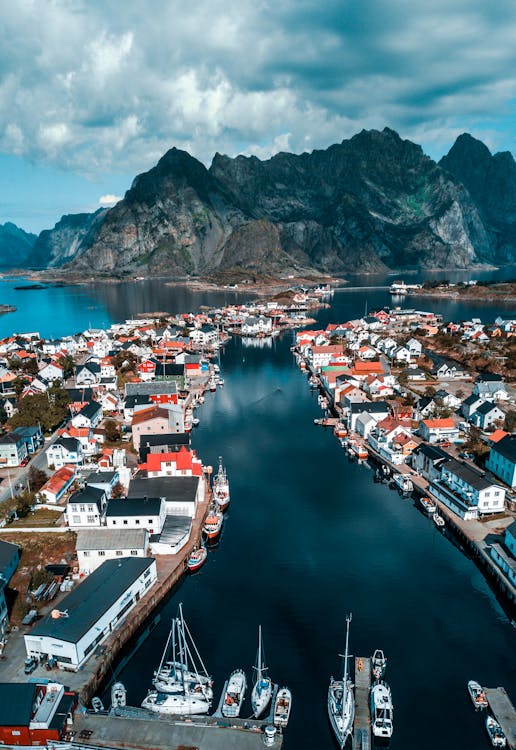Norwegian PM suggests restoration of contacts with Russia: “Nothing good in isolation”
Thu 10:19 am +01:00, 27 Oct 2022It is for this reason that Norway, despite making record profits in the energy sector, wants dialogue with Moscow to reopen so that there can be an alleviation in the cost-of-living crisis and other sectors of the economy. Nonetheless, Oslo itself makes little contribution to peace efforts as it maintains anti-Russia sanctions and continues to train, fund, and supply the Ukrainian military.
By Ahmed Adel | October 26, 2022
Norwegian Prime Minister Jonas Gahr Store said that Western countries should not isolate Russia and should instead establish direct communication with Moscow to resolve the exceptionally difficult situation in Ukraine. However, Norway, a NATO member, is also one of the leading countries to oppose Russia through sanctions and support for the Ukrainian military.
“There is nothing good in isolating Russia. It is alarming that today we have so few contacts and direct communication with Russia,” Store told the Norwegian parliament on October 25.
This is an especially surprising statement since Norway has donated 4,000 M72 anti-tank weapons to Ukraine, as well as an air defence system, 22 self-propelled artillery vehicles, long-range rocket artillery and armoured vehicles. Norway will also donate the Black Hornet micro-drone system and Hellfire missiles, and will also train Ukrainian soldiers in Britain.
Although Norway is following Washington and Brussels in supporting Ukraine and acting hostile to Moscow, perhaps there is a realization setting in Oslo that the war will not end with the Ukrainian military capturing Donetsk, Kherson, Luhansk and Zaporozhye from Russia. By coming to such a conclusion, the only realistic option left is to call for direct communications with Russia, something the West cut in the false belief that sustained isolation and economic pressure would make Moscow capitulate and end its military operation in Ukraine.
This was of course a naïve belief since the Kremlin has for years attempted to resolve the situation in Donbass through negotiations and discussions, something that Kiev, with the West’s support and backing, never supported. Moscow was forced to take matters into their own hands to protect the Russian-speaking minority from Kiev’s fascistic policies. Although Moscow has taken the military approach, it is still open to honest and open dialogue, but of course with different demands since the situation on the ground has significantly changed.
According to the Norwegian prime minister, the lack of dialogue with Moscow undermines the possibility of reaching a peaceful settlement in Ukraine. He also added that the current political situation was the most difficult since World War II, and it is for this reason as well that communication channels must reopen.
Russian President Vladimir Putin has repeatedly warned the West that Russia could not be isolated, and this is reflected in the fact that several major countries, including China, India and Brazil, have vocally opposed the idea of imposing unilateral sanctions on Moscow and called for the continuation of dialogue in the interest of peaceful world development.
Sanctions against Russia have led to disruptions in logistical and financial operations and to a spike in energy prices worldwide, pushing many European governments to resort to contingency measures. At the same time, Brussels has been looking for alternatives to Russian natural gas as it has pledged to end its dependence on energy supplies from Russia, thus making Norway all the more important to the EU.
The Scandinavian country is now the EU’s leading natural gas supplier, overtaking Russia. It is not forgotten that the Nord Stream pipelines leaks corresponded with the opening of a new pipeline from Norway to Poland. Although Norway is being heralded as a saviour for energy-struggling Europe, it has been criticised for essentially war profiteering.
“There is no question that the fallout from the war is making Norway richer. The state is a major player in the oil and gas industry. All told, Oslo expects to bring in about $109 billion from the petroleum sector this year — $82 billion more than in 2021. Much of that will go to the country’s sovereign wealth fund, a national nest egg worth more than $1 trillion,” The Washington Post reported.
Andreas Bjelland Eriksen, state secretary at the Ministry of Energy and Petroleum, denied that Norway is profiting off the war, stressing that high energy prices “hurt Norway too.” He noted that gas exports to Europe are up 8 percent year over year. “Europe sees that, and it sees that we are a good partner,” Eriksen added.
In this way, Norway has essentially become a big winner from the war in Ukraine as it has now become the main supplier of natural gas to Europe despite charging astronomical prices. However, this is not reflected on ordinary citizen life as Norway is not immune from the effects of the self-sabotaging anti-Russia sanctions.
Complementing the higher electricity bills arriving every month, Norwegians are also experiencing higher prices for almost everything else. State statistics bureau SSB (Statistics Norway) recently reported an 11.3 percent rise in transport costs, a 12.1 percent rise in food and non-alcoholic drinks, an 8.7 percent rise in hotel and restaurant bills and a 7.6 percent rise in prices for household items and maintenance. Norway’s biggest bank, DNB, also reported that its customers are now spending much less money on expensive items.
It is for this reason that Norway, despite making record profits in the energy sector, wants dialogue with Moscow to reopen so that there can be an alleviation in the cost-of-living crisis and other sectors of the economy. Nonetheless, Oslo itself makes little contribution to peace efforts as it maintains anti-Russia sanctions and continues to train, fund, and supply the Ukrainian military.
Ahmed Adel is a Cairo-based geopolitics and political economy researcher.











